The great-great-grandson of Miklukho-Maklay visited the Papuan tribe, which his ancestor explored 150 years ago
On September 20, 1871, the ship "Vityaz" anchored 140 meters off the coast of New Guinea. It was the Russian researcher, ethnographer, anthropologist and biologist Nikolai Miklukho-Maklay, who studied the indigenous population of Southeast Asia, Australia and Oceania. After a not very successful first meeting with the aborigines (they were allowed on board, but they were afraid of the artillery salute in honor of the arrival), Miklukho-Maklay, refusing protection, accompanied by two servants landed on the shore.
In those days, it was like signing a death sentence for yourself: the local Papuan tribes were considered cannibals and bounty hunters. A week after the landing, the Vityaz left the bay, leaving the Russian explorer on the island.
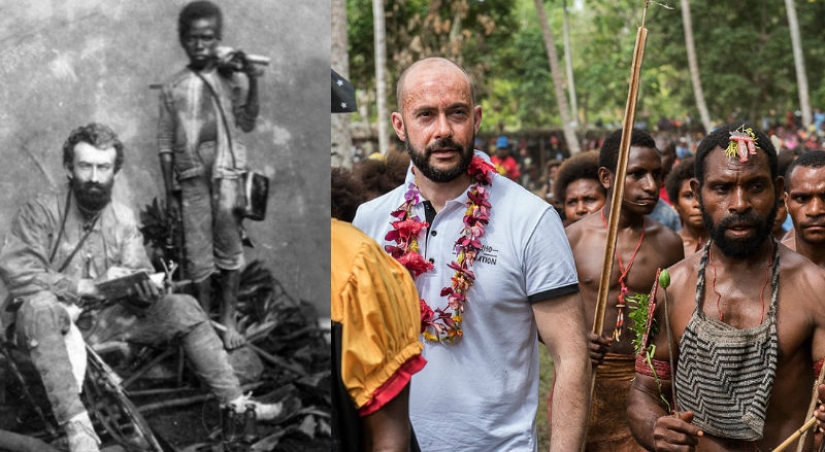
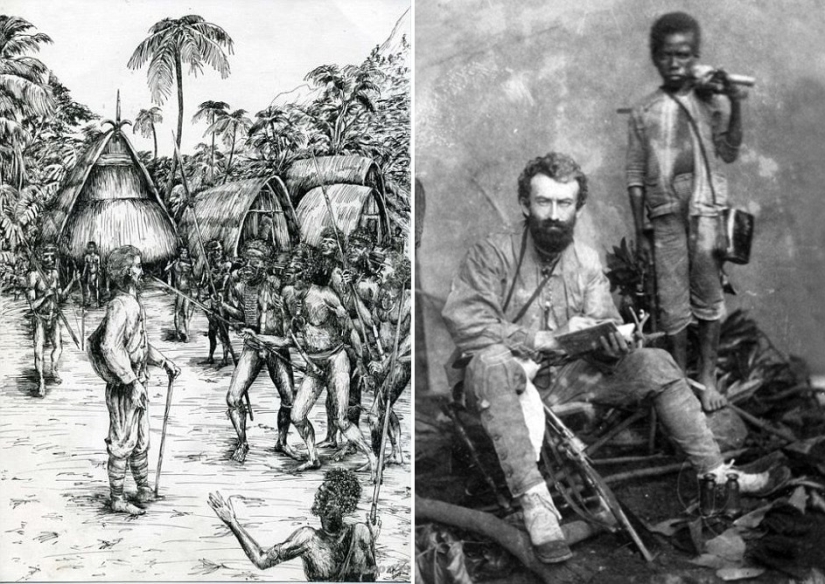
Miklukho-Maklay was luckier than Cook. Although the natives were wary of the newcomer and were disturbed by his visits to the village, however, there were those whose curiosity overcame fear, and they came to his hut. The researcher himself, like his servants, did not show aggression, like many white people and colonialists.
Soon they got used to him, and after the amazing rescue of a local resident (a tree fell on him, the wound on his head festered, and Miklukho-Maklay cured him), the authority of the scientist was so strengthened that he was no longer considered an evil spirit and was invited to the village. The researcher was allowed to see women and children, study everyday life and culture.
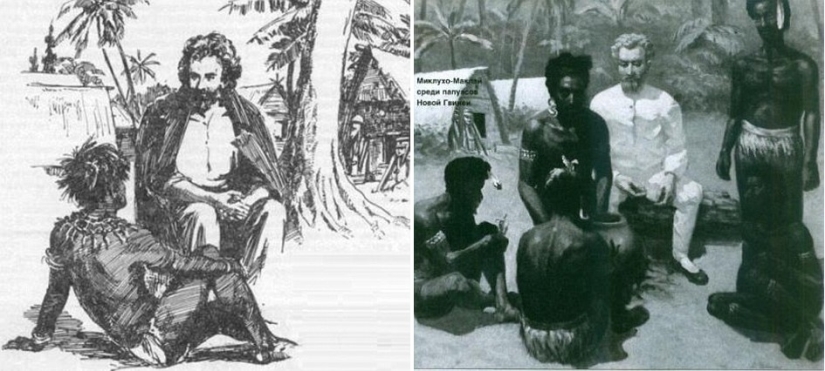 In total, Miklukho-Maklay lived in a wild Papuan tribe for three years — one year on the first trip, two years on the second. He managed to collect really unique material for that time. He showed that unknown tribes should not be perceived only as savages and cannibals, that they also have their own laws, customs and traditions.
In total, Miklukho-Maklay lived in a wild Papuan tribe for three years — one year on the first trip, two years on the second. He managed to collect really unique material for that time. He showed that unknown tribes should not be perceived only as savages and cannibals, that they also have their own laws, customs and traditions.
After traveling to New Guinea, Miklukho-Maklay wrote in his work that he realized that there is no superior race in the world and all races are equal. And that it is the duty of every more developed society to help the less developed protect their freedom and self—determination.
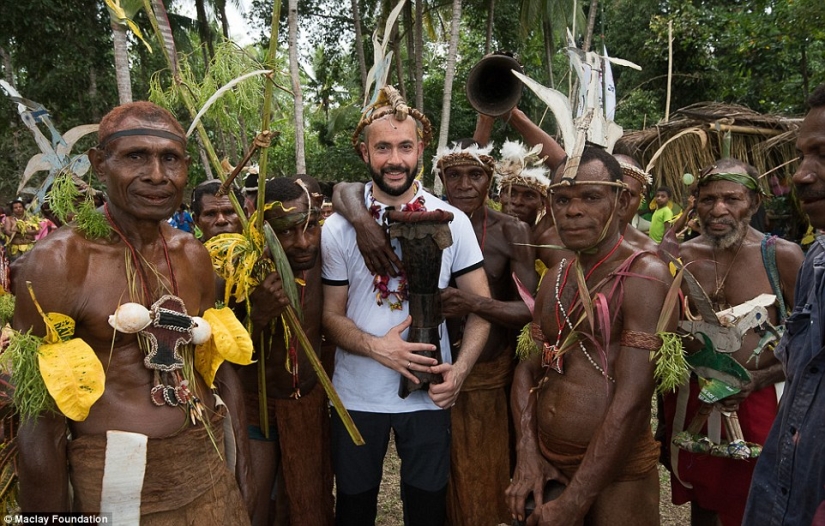 On September 15, 2017, almost 150 years later, Miklukho-Maklay, 44—year-old Nikolai, namesake and great-great-grandson of the famous explorer, set foot on the same coast of New Guinea again. Nikolai Miklukho-Maklay Jr. arrived on the shore, once known as the Maklay Coast, to honor the memory of his grandfather and see with his own eyes the world that the researcher knew almost two centuries ago.
On September 15, 2017, almost 150 years later, Miklukho-Maklay, 44—year-old Nikolai, namesake and great-great-grandson of the famous explorer, set foot on the same coast of New Guinea again. Nikolai Miklukho-Maklay Jr. arrived on the shore, once known as the Maklay Coast, to honor the memory of his grandfather and see with his own eyes the world that the researcher knew almost two centuries ago.
The locals greeted him with great honors.
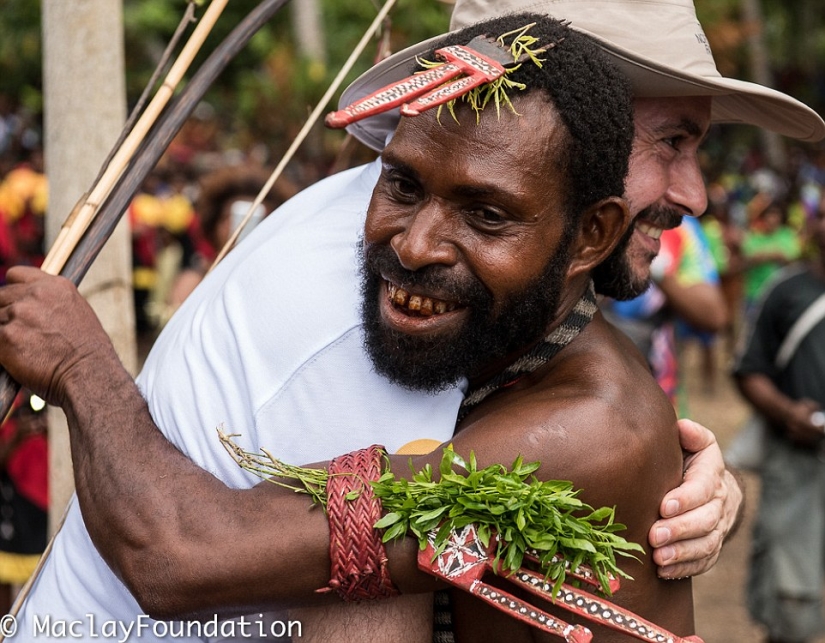
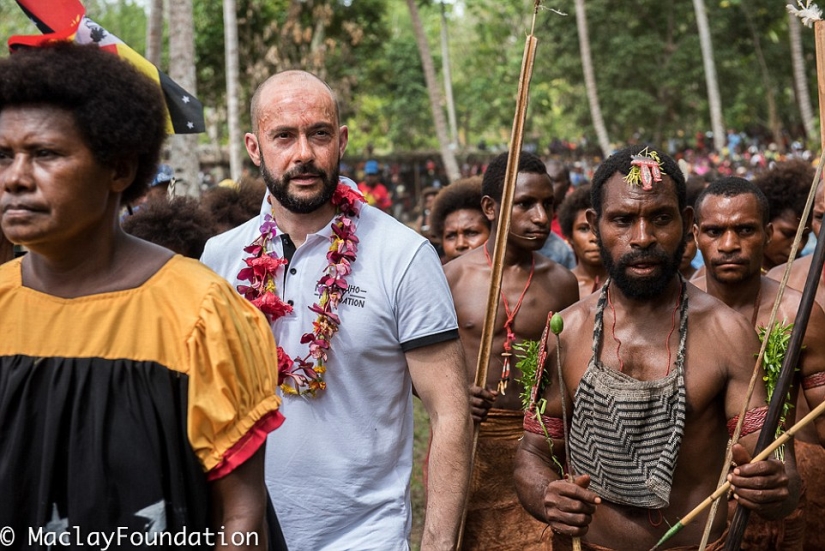
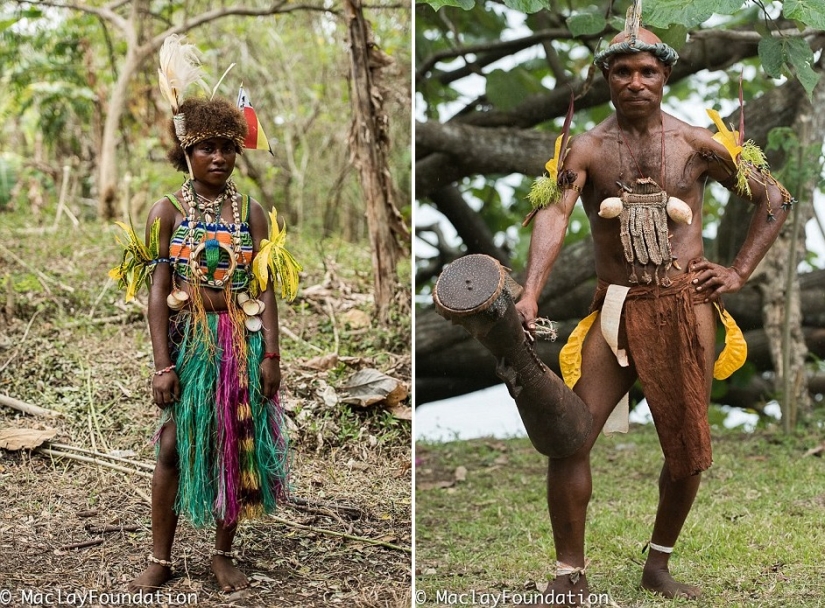 The natives of the three villages greeted Nicholas in bright national clothes. And the locals took the sudden rain as a good sign: "Maklay has returned and brought with him the long—awaited rain," they said with respect.
The natives of the three villages greeted Nicholas in bright national clothes. And the locals took the sudden rain as a good sign: "Maklay has returned and brought with him the long—awaited rain," they said with respect.
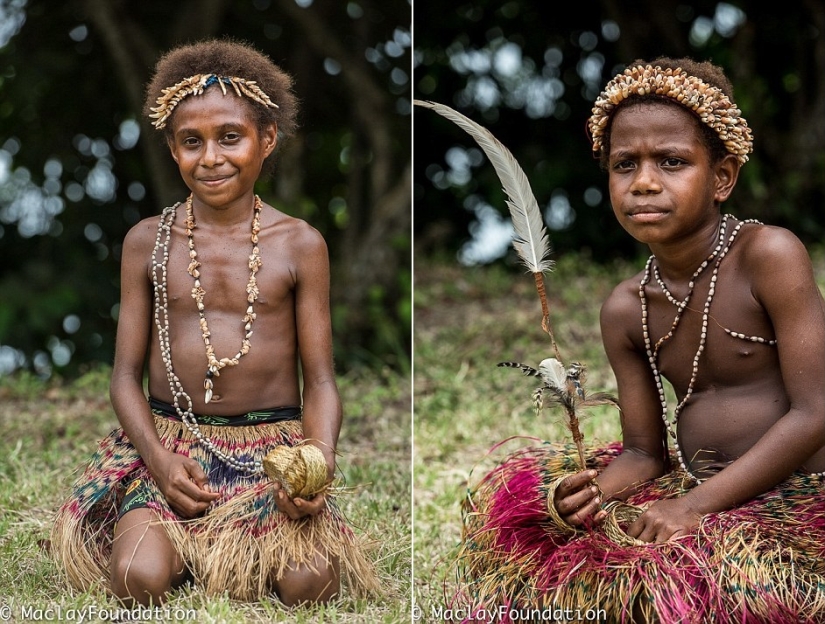
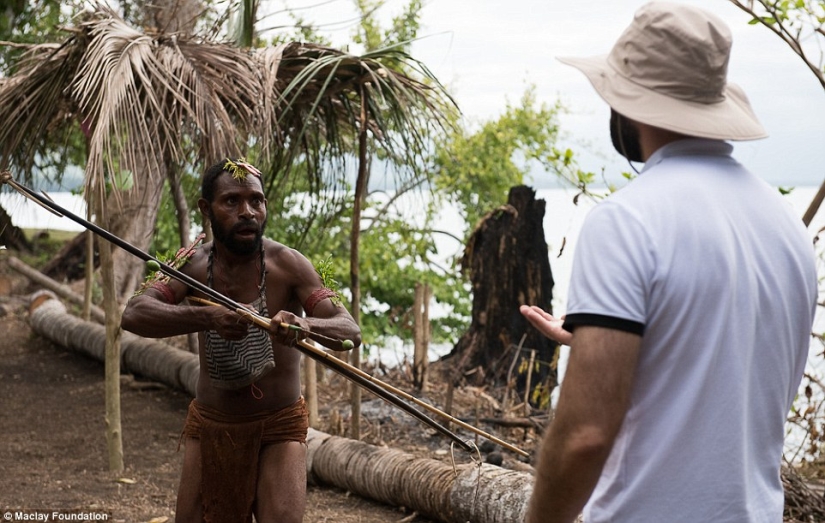 A tribal warrior and the ancestor of Miklukho-Maklay are playing a scene, as they met a Russian researcher 150 years ago.
A tribal warrior and the ancestor of Miklukho-Maklay are playing a scene, as they met a Russian researcher 150 years ago.
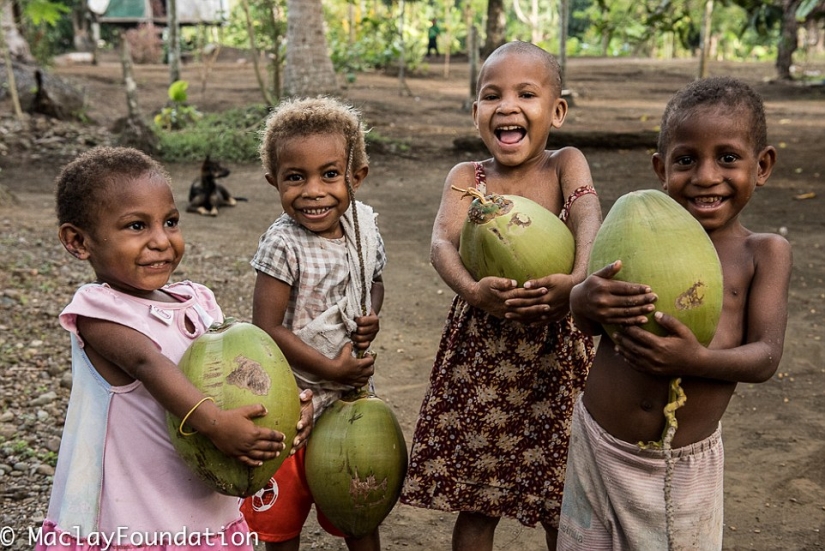 In an interview with journalists, Miklukho-Maklay Jr. said: "I have made two important discoveries. I really realized that my ancestor was a great man only after an independent trip to these lands, when I saw the attitude of these people to his person. And the second thing — I saw how friendly and sincere these people were to someone who came to them without falsehood and with an open soul. New Guinea will always remain in my heart."
In an interview with journalists, Miklukho-Maklay Jr. said: "I have made two important discoveries. I really realized that my ancestor was a great man only after an independent trip to these lands, when I saw the attitude of these people to his person. And the second thing — I saw how friendly and sincere these people were to someone who came to them without falsehood and with an open soul. New Guinea will always remain in my heart."
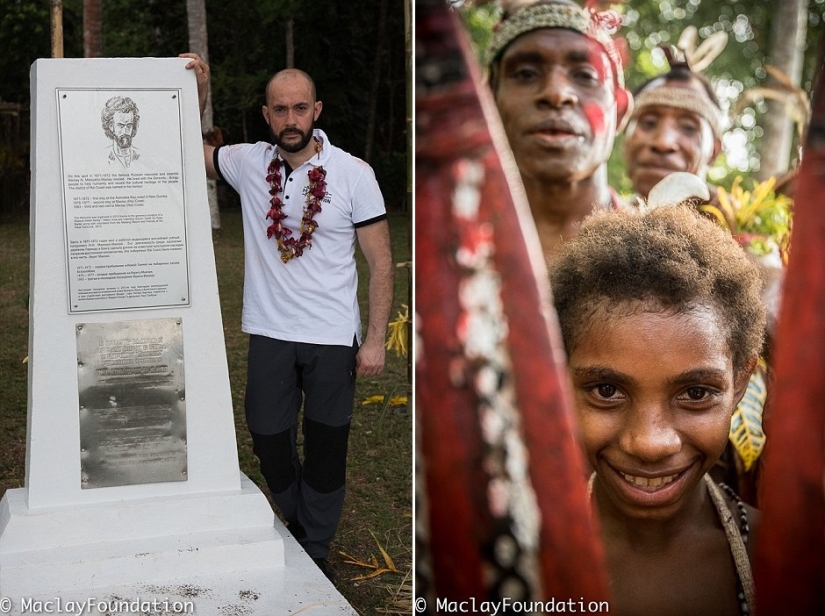 Nikolay Miklukho-Maklay Jr. is the head of the Foundation for the Preservation of Ethnocultural Heritage named after him. Miklukho is a Maklaya and is engaged in ethnographic research.
Nikolay Miklukho-Maklay Jr. is the head of the Foundation for the Preservation of Ethnocultural Heritage named after him. Miklukho is a Maklaya and is engaged in ethnographic research.
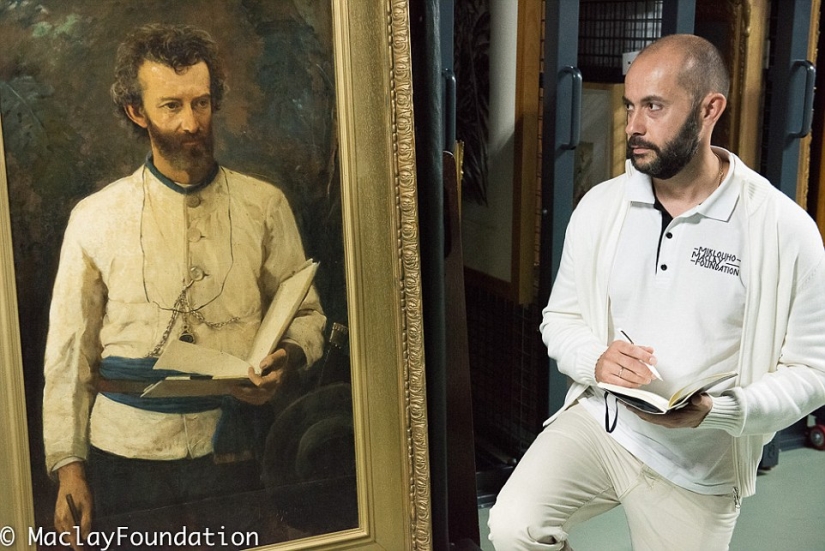
Keywords: Meeting | Researchers | Papua new guinea | Scientist
Post News ArticleRecent articles

It's high time to admit that this whole hipster idea has gone too far. The concept has become so popular that even restaurants have ...

There is a perception that people only use 10% of their brain potential. But the heroes of our review, apparently, found a way to ...
Related articles

Papua New Guinea continues to amaze the primitive culture of their own peoples. Italian photographer managed to capture the unusual ...

They say that you should not meet your heroes, but judging by the stories below, it all depends on who your idols. While some fans ...

Myths that the length of a man's dignity is related to the size of other parts of the body, go around the world for more than one ...

New Year's is a time to surprise and delight loved ones not only with gifts but also with a unique presentation of the holiday ...